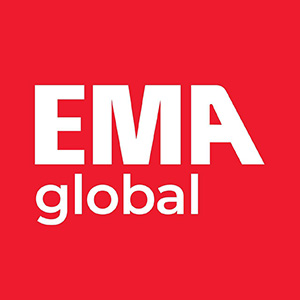
Easter is the perfect time to pack your bags and set off on an adventure. Whether it’s a relaxing beachside retreat, a city escape, or an outdoor expedition, this holiday offers the ideal excuse to travel with family and friends. From indulging in Easter treats to exploring new destinations, there’s plenty to enjoy during this festive season.
But no matter how exciting your trip is, accidents and unexpected health issues can still happen. A slip while hiking, a severe allergic reaction, or even food poisoning can quickly turn your dream getaway into a stressful hospital visit. The last thing you want is to spend your Easter in the emergency room of an unfamiliar country. Fortunately, with a little preparation and awareness, you can minimise health risks and ensure a safe, enjoyable trip.
Plan ahead for your health and safety
One of the best ways to avoid medical emergencies while travelling is to plan ahead. Before your trip, research the healthcare facilities available at your destination. Check if your travel insurance covers medical emergencies, including medical evacuation in Singapore or overseas. Having a solid plan in place ensures that you can access medical help quickly if needed.
If you have any pre-existing medical conditions, visit your doctor before travelling. Ensure you have enough medication for the entire trip and carry a copy of your prescription. It’s also helpful to note down emergency contact numbers, including local medical services and your country’s embassy.
Pack a travel first-aid kit
A well-stocked first-aid kit is a travel essential. Include basic supplies such as pain relievers, antiseptic wipes, bandages, and any personal medications you may need. If you’re travelling to a remote location, consider adding items like antihistamines, anti-diarrhoea tablets, and rehydration salts. Having these on hand can prevent minor health issues from escalating into something more serious.
Be cautious with food and drinks
Easter feasts are one of the highlights of the holiday, but be mindful of what you eat and drink, especially when travelling abroad. Foodborne illnesses are a common cause of hospital visits among travellers. To avoid this, opt for freshly cooked meals, drink bottled or purified water, and avoid raw or undercooked seafood and meats.
If you have food allergies, learn how to communicate them in the local language or carry a translated allergy card. Some destinations may not have the same food safety standards, so it’s always good to err on the side of caution.
Take extra care during outdoor activities
Many Easter travellers seek adventure, whether it’s skiing in the mountains, hiking in nature reserves, or trying out water sports. While these activities are thrilling, they also come with risks. Follow safety guidelines, use proper equipment, and never push yourself beyond your limits.
For example, if you’re planning to go snorkelling or diving, be aware of the risks of decompression sickness. In severe cases, this condition could require medical evacuation in Singapore or back to your home country. Always listen to local experts and follow recommended safety precautions.
Stay hydrated and protect yourself from the sun
Travelling often involves long hours outdoors, making dehydration and heat exhaustion real concerns. Carry a reusable water bottle and drink plenty of fluids throughout the day. Wear sunscreen, a hat, and sunglasses to protect yourself from harmful UV rays. Sunburns can be more than just uncomfortable – they can lead to heatstroke or severe dehydration, which may require medical attention.
Watch out for accidents and injuries
Even simple activities like sightseeing can lead to unexpected injuries. Slipping on wet pavements, tripping on uneven roads, or twisting an ankle while exploring can quickly put a damper on your holiday. To prevent such incidents, wear comfortable, sturdy footwear and stay aware of your surroundings.
For those travelling with young children or elderly family members, extra precautions should be taken. Keep an eye on little ones in crowded places, and ensure that older travellers have the support they need, such as walking aids or mobility assistance if required.
Know when to seek emergency help
Despite all precautions, some medical emergencies require immediate professional help. Knowing the signs of serious health conditions can make a big difference. If someone in your travel group experiences chest pain, difficulty breathing, sudden confusion, or severe allergic reactions, don’t hesitate to seek emergency medical attention.
In severe cases, there are medical conditions that warrant an air ambulance, ensuring that patients receive urgent care or are transported to a facility with better medical resources. If you or a loved one is in such a situation, having access to services like an air ambulance in Singapore can be a lifesaver.
Conclusion
Easter should be a time of joy and celebration, not a stressful trip to the emergency room. By planning ahead, taking basic safety precautions, and staying mindful of potential risks, you can enjoy your travels without unnecessary health concerns. However, if a medical emergency arises, knowing your options for professional medical assistance can make all the difference.
EMA Global offers air ambulance services to ensure you receive the care you need, no matter where you are. Travel safely and make the most of your Easter holiday!

